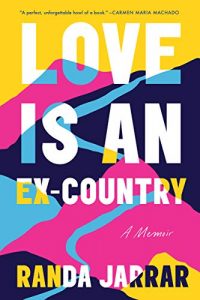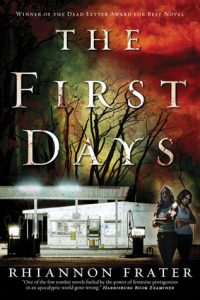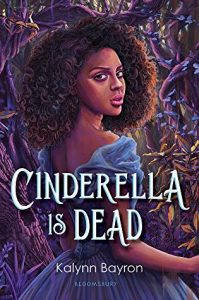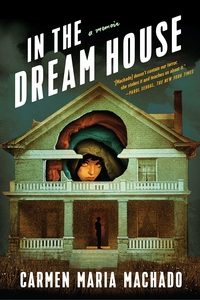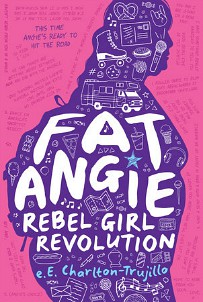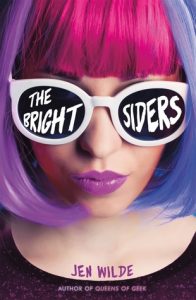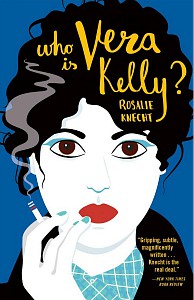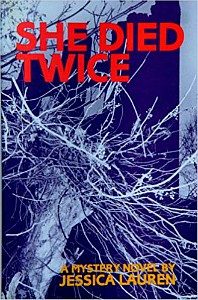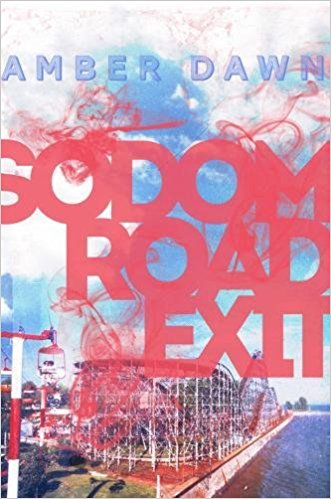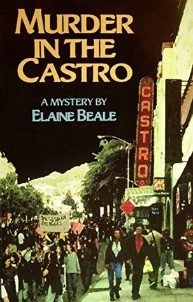I can’t resist a book with a Carmen Maria Machado blurb, so I picked this up knowing very little about it. In theory, this is about Randa Jarrar’s road trip across the U.S., inspired by Tahia Carioca’s cross-country road trip. It took place in 2016 as a way to re-engage with her country, trying to find some connection with it after the alienation of Trump’s election. I say “in theory” because this book actually has very little to do with that trip. It’s an exploration of being a fat queer Arab woman in America through vignettes of her life.
Jarrar discusses what it’s like to be a white-passing Arab woman in the U.S., including having white people expect her to agree with their racist comments. She describes being pulled over by a police officer who is sympathetic, and even trying to convince him to give her a warning–she knows she is safe, being read as white. When she goes home, she discovers that Philando Castile was pulled over that same day. She also traces the history of tropes and stereotypes about Arabs in the U.S., and how that racism has transformed over time, often enforcing contradictory ideas.
While this is a memoir, it reminded me of an essay collection meets poetry: Jarrar often writes in short paragraphs juxtaposing different topics. In the space of one page, she examines dolls from half a dozen perspectives: as playthings, as childhood punching bags, as used in therapy, as gifts, as sexualized muse by certain artists, and being treated as one. It feels like there are spaces between these ideas for the reader to fill in, to actively make those connections.
This is a book that requires a lot of trigger warnings. She includes harrowing details of her abuse, including physical abuse by her father, domestic abuse, and reproductive coercion. She was briefly infamous for a tweet that was critical of Barbara Bush after her death, reacting to her feed praising her, saying, “Barbara Bush was a generous and smart and amazing racist who, along with her husband, raised a war criminal. Fuck outta here with your nice words.” In response, she received a barrage of hate mail, including vitriolic death threat emails that are included in this collection. She was doxed, and her critics attempted to get her fired–unsuccessfully, because she had tenure, but the university put out a statement denouncing her comments.
Jarrar is Palestinian, which informs her politics. She describes trying to visit Palestine, and the terrifying hoops she had to jump through. She spent the weeks before travel studying on exactly what to say to the Israeli border guards, whose names to use, which reasons were acceptable for visiting. She is detained by teenage Israel boys, who seem bored. They are kept for hours for seemingly no reason. Their passports are taken away. After facing a long line of bureaucratic hurdles, they can still be sent back to the U.S. for no apparent reason, unable to step foot in their home, kept out by another country.
Sexuality is fraught in Jarrar’s story, often accompanied by abuse. When she finds BDSM, it opens up new doors for her: “Until BDSM, a lot of sex felt like assault.” In this community, boundaries are respected. Everything is negotiated in advance, and nothing is taken for granted. Kink meant consent and safety, knowing exactly what to expect. Through it, she is able to reclaim sexuality, and finds empowerment both in taking control and being able to safely relinquish it.
This memoir left me with a lot to think about. Jarrar describes suffering through so much abuse in her life, and feeling trapped and powerless. She discusses racism and misogyny and how they underpin so much of American society. At the same time, there is hope here. She is also a proud fat queer Arab woman, unafraid to speak her mind. If you want a thoughtful, challenging memoir that will leave you thinking, definitely pick this one up.
My second husband did not want me to be on top. He made sounds, squirming and uncomfortable, when I was on top. He told me a year after we’d gotten together than my body crushed his. His body was smaller than my body. One afternoon, in bed, he nonchalantly told me that I needed to lose a hundred pounds. To shrink myself for him. (Conceivably) to be his equal. I would marry him, cry for years, and leave him, before I realized he did this because he could never make himself big enough–intellectually, financially, sexually–to be my equal.

